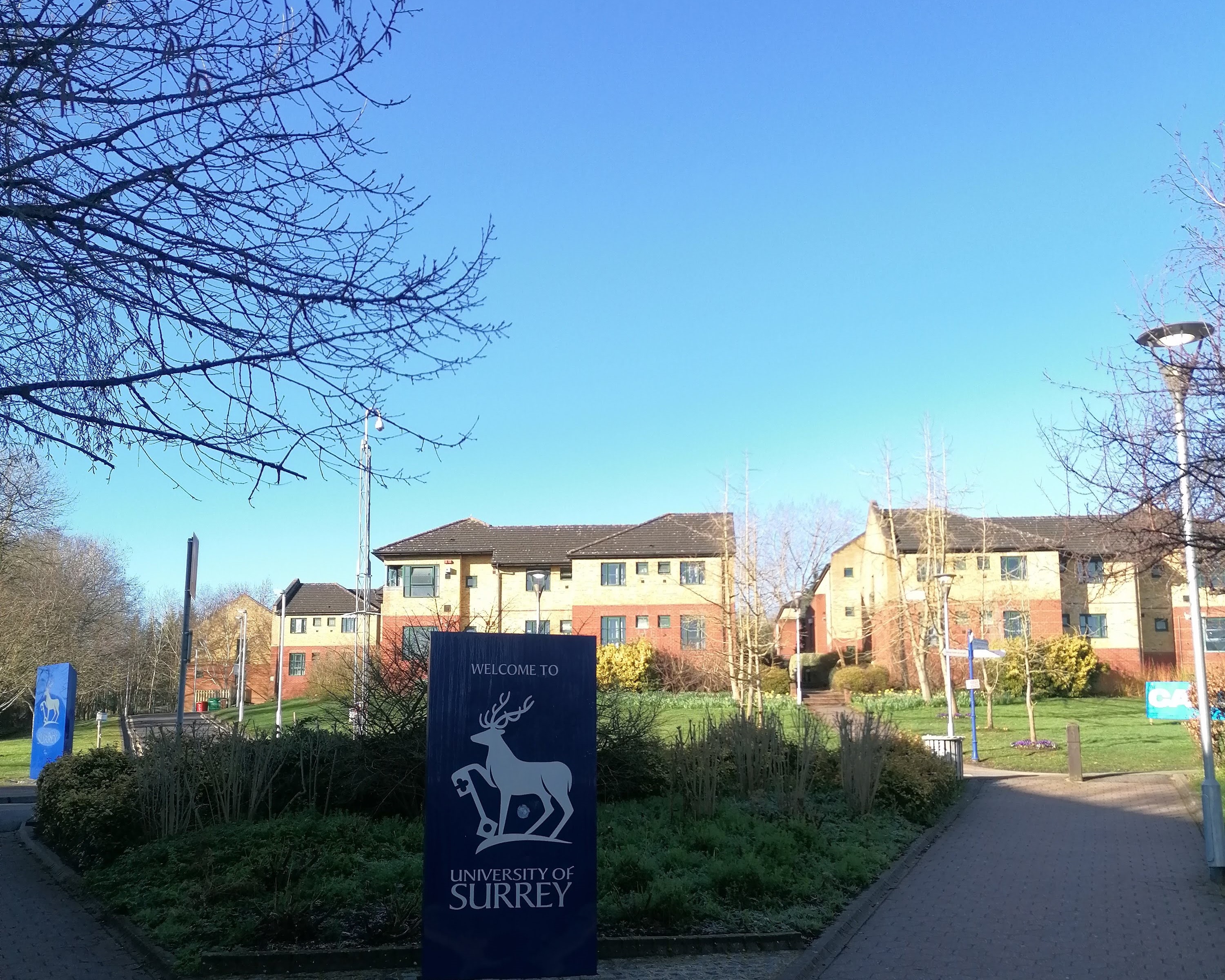
A photo of a ‘Welcome to Surrey’ sign on campus.
If you’re a new PhD student, things can be a little bit overwhelming, to begin with. Whether it’s setting into a new place, meeting colleagues and your supervisor, or not knowing where to start with your research, hopefully, this post will help you.
Take time to explore
Guildford is a beautiful place but as with any new city, it can take a while to get to know your way around. You can check out some of the posts on this blog to find some great suggestions as to what spots you should look out for:
Aside from finding nice places to hang out, it’s worth taking some time to walk around campus and see if there are any places in the library, the hive, or the nest that seems like a good workspace for you. I often find that changing my environment helps me stay focused, so I’ll often take my work into the library if I’m starting to feel distractable.
Try to meet people outside your department
Being a PGR can feel a little odd at first. You’re kind of still a student but your role is more like research staff so it can be difficult to work out where you belong. Some great options for meeting other PGRs are joining the postgraduate society and going to the researcher café. This way, you can get to know people in other departments who you otherwise wouldn’t meet.
Establish expectations with your supervisor
Every supervisor-student relationship is different. It took me a long time to get used to being more of a colleague rather than a student. When you first meet your supervisor, it’s a good idea to discuss expectations and make sure that yours aligns with theirs. If you know that they expect you to meet with them once a week or produce a literature review by a certain date, it gives you something to work with rather than just being left to your own devices.
Ask for help when you need it
If you’re struggling with a research problem, don’t be afraid to discuss it with a colleague like a more advanced PhD student in your group or a postdoc or even your supervisor. They’ll all be happy to help guide you and provide input on what you’re doing. If you know all of the answers immediately, I’d be dubious that you’re pushing new ground in terms of research. Sometimes just one quick chat about your work over coffee can make all the difference. You might even find that just talking about it out loud with someone means that you come to a solution yourself.
Don’t be afraid to seek out additional support
Doing a PhD is tough. There will probably be times when you struggle and that’s okay. As well as academic support from your supervisor, you may also need pastoral support throughout your PhD. This might be financial support from the hive, mental health support from the centre for wellbeing, or disability support from the disability and neurodiversity team. You can also go to the Doctoral College if you have any concerns about your studies. Be aware of what is out there for you here at Surrey- you never have to go through anything alone.
Find your work-life balance
This took me so long to get the hang of! In fact, I’ve written a whole post about this topic here. If you want to avoid burnout during your PhD, my top piece of advice is to find the right balance for you. There’s a lot of pressure to overwork in academia and it’s part of the reason why there’s such a high instance of depression in PhD students. You can push back on this by establishing work boundaries and giving yourself time to rest and recharge. It is possible to do your PhD without working much on the weekends.
Collaborate with colleagues
Research at its best is collaborative. I try to make an effort to talk to colleagues who are working on similar topics to me, especially if they come from a slightly different discipline. This can shed a whole new perspective on your work. If you’re an experimentalist like me, finding a theorist with similar research interests can be really beneficial. You can also collaborate with partners from other universities and countries to really enhance your research.
Enjoy the beginning of your PhD journey!
You only get to start your PhD once, so make the most of it. The time will fly and before you know it, you’ll be near the end of your doctorate. There’s nothing quite like starting a new research project and getting to know a new subject. You might be reaching for your reference books to look up every other word of a research paper you’re reading, but the thrill of learning something new and embarking on a doctorate is hard to beat.
